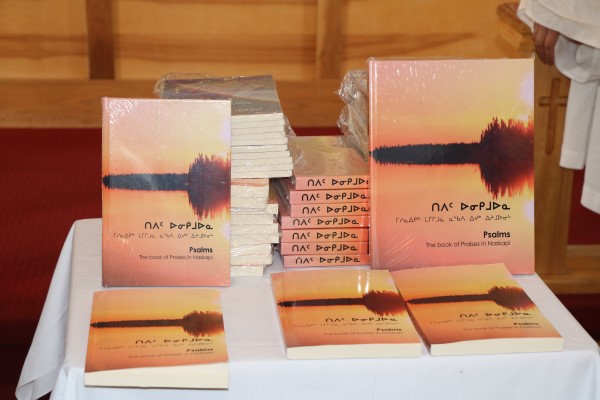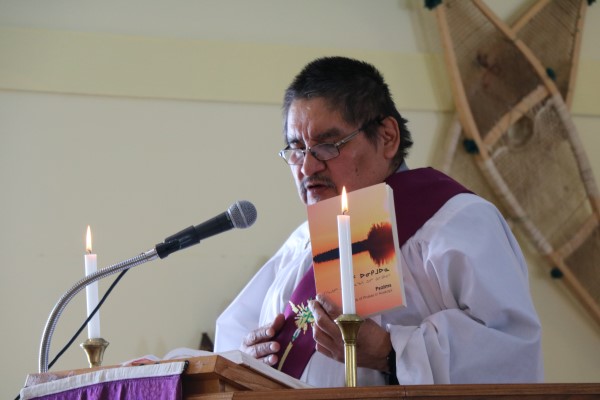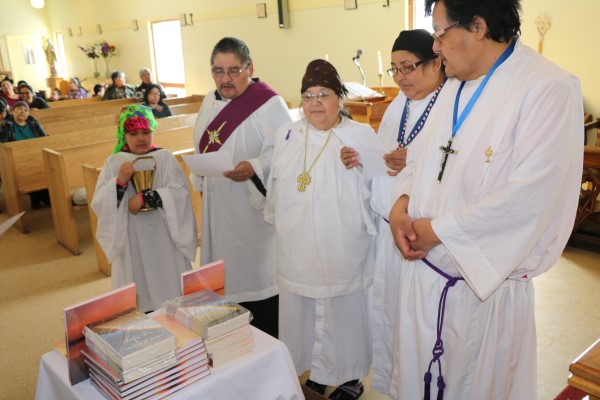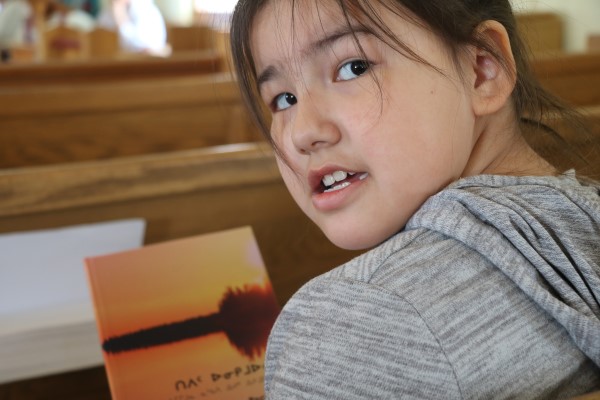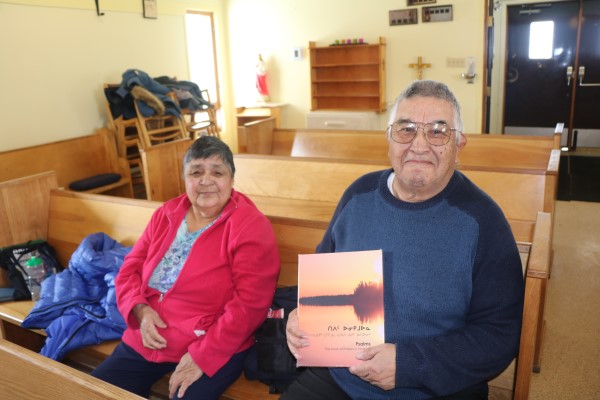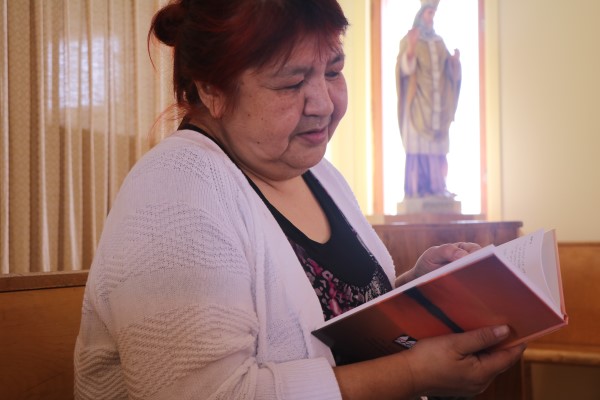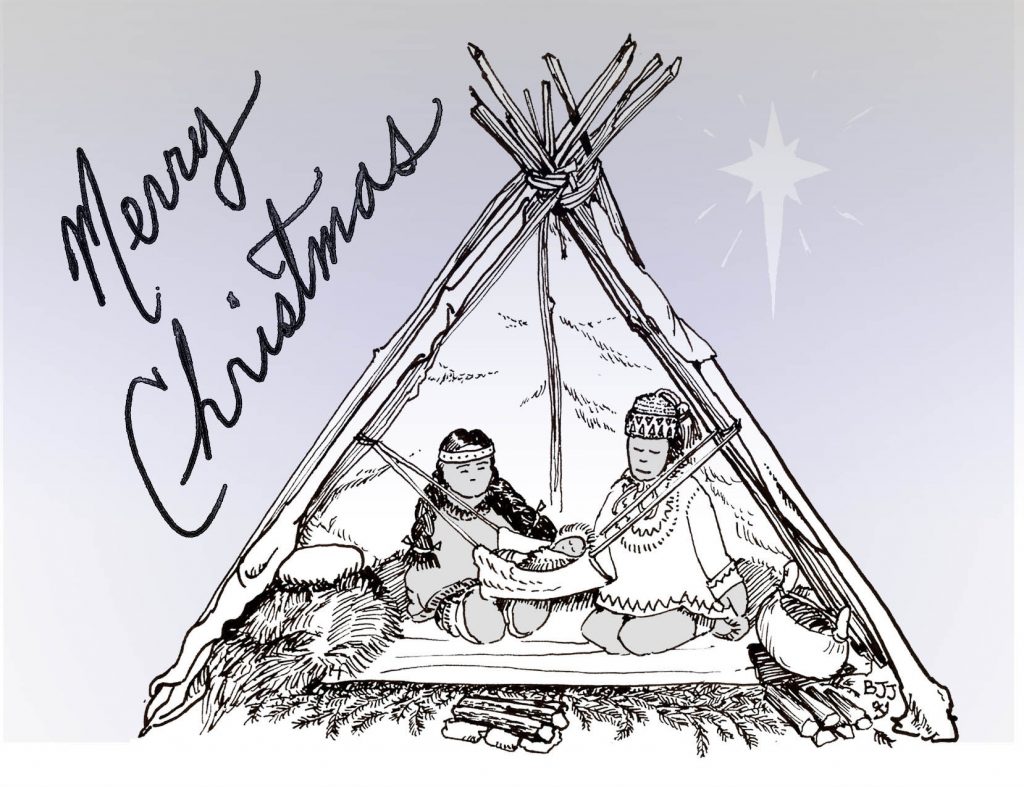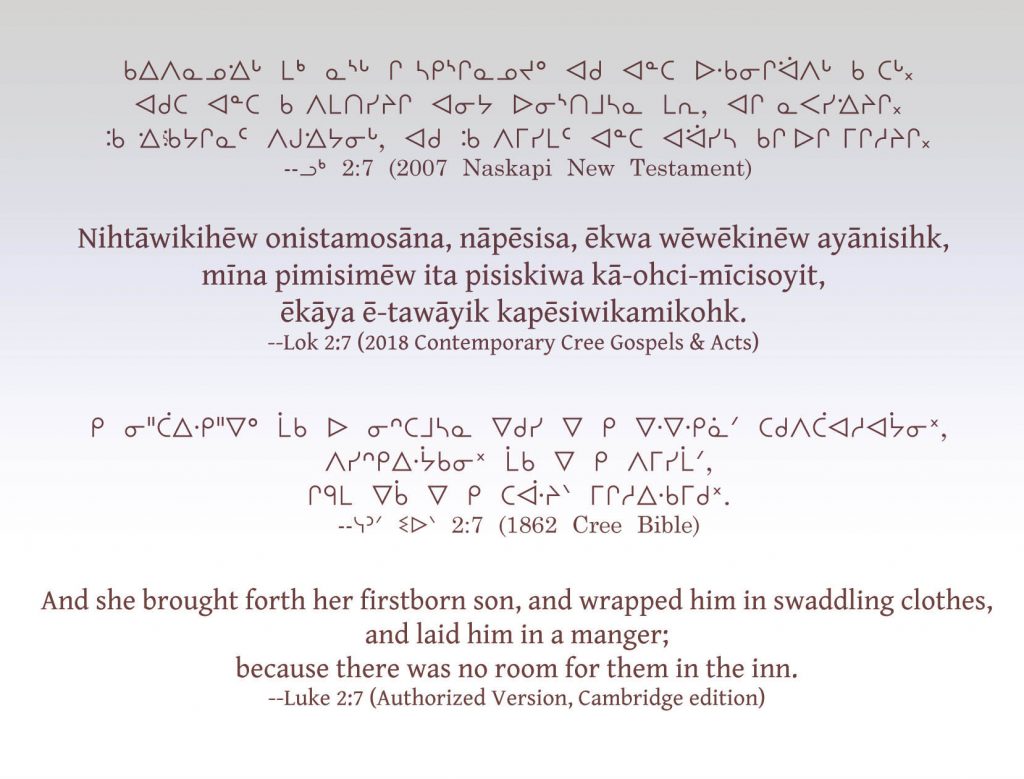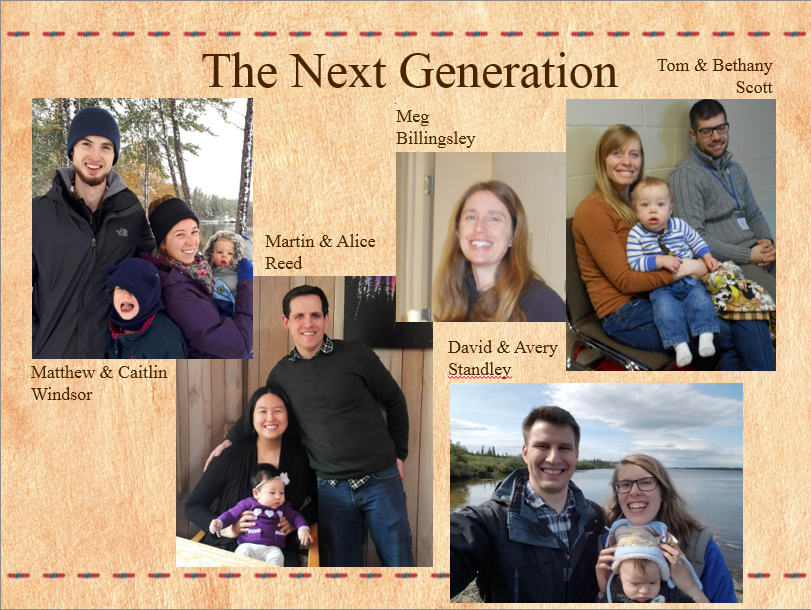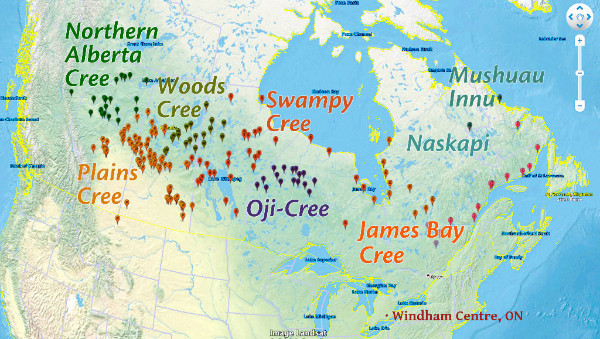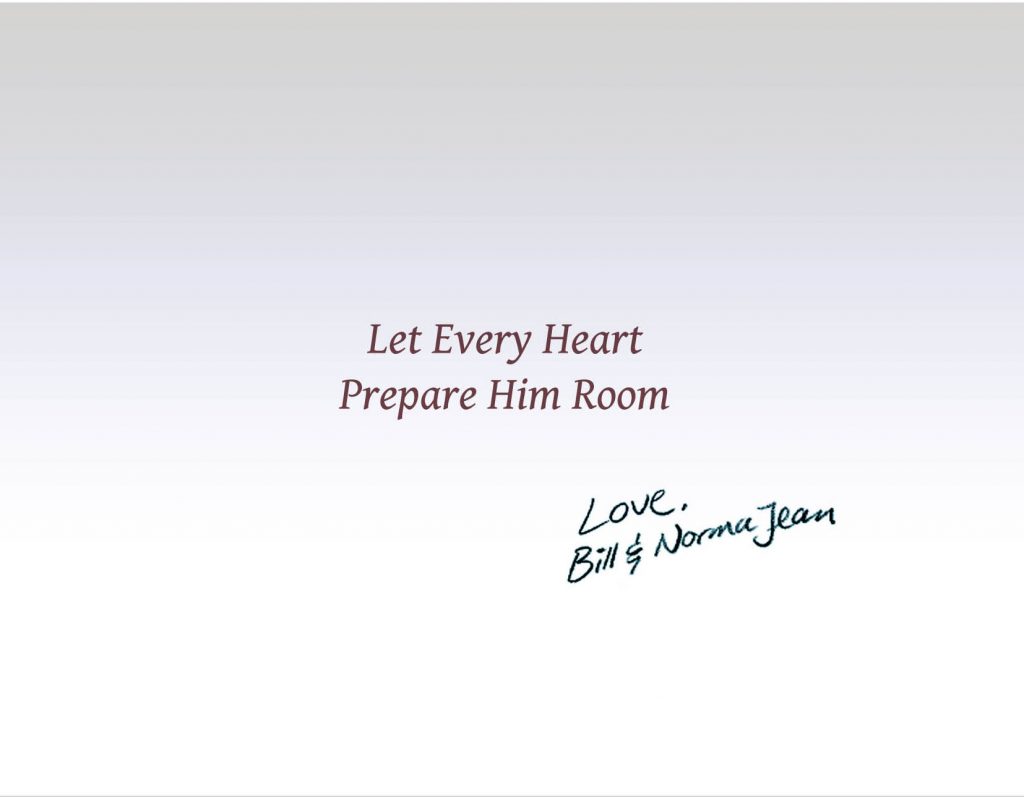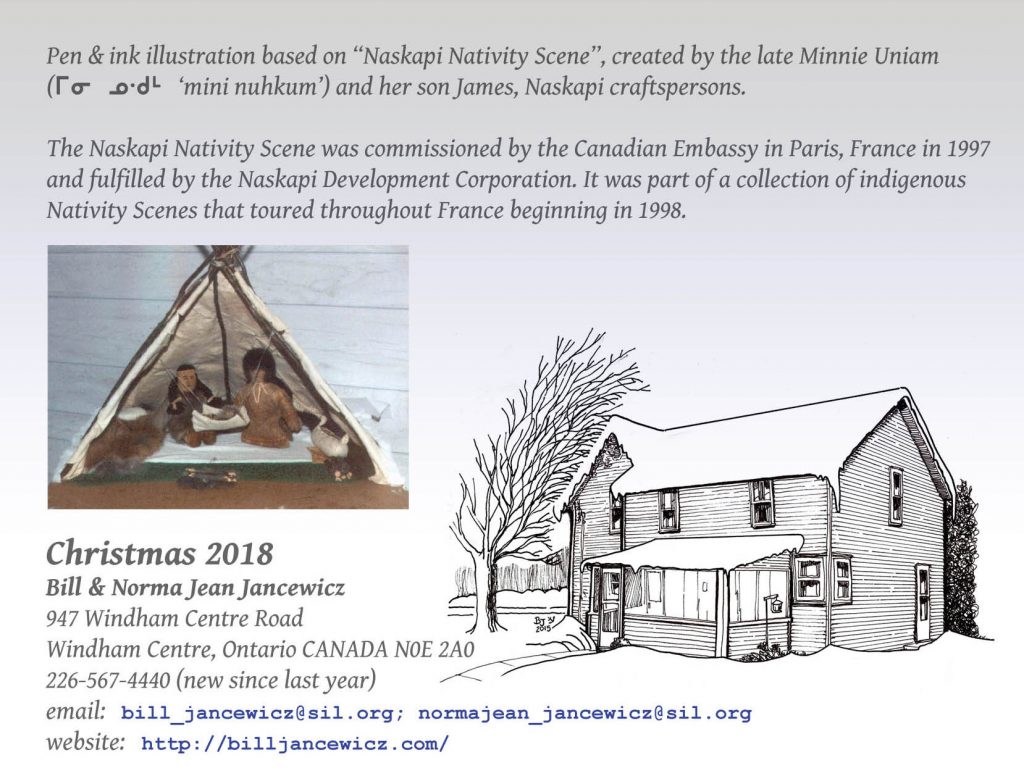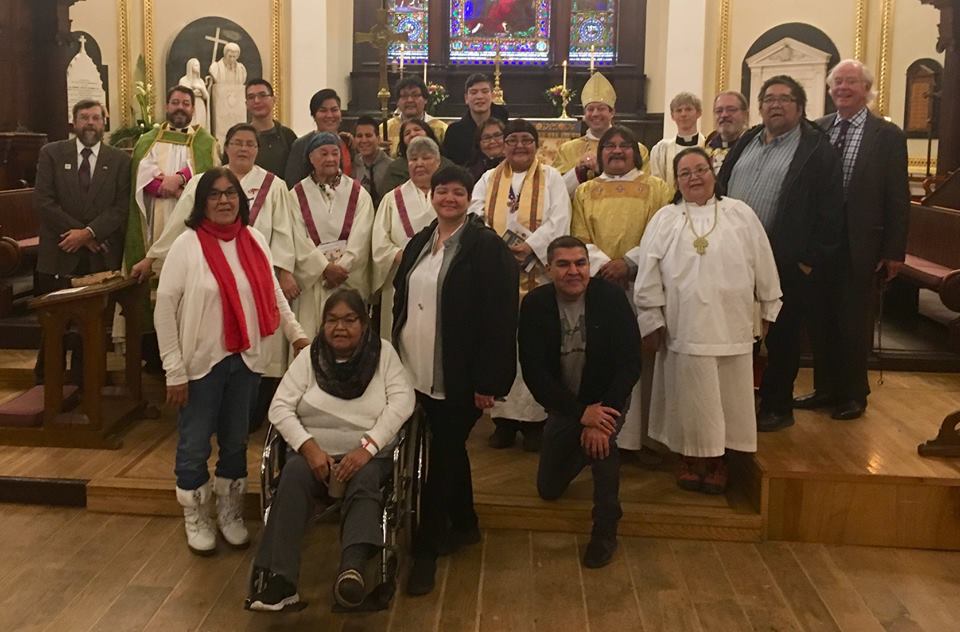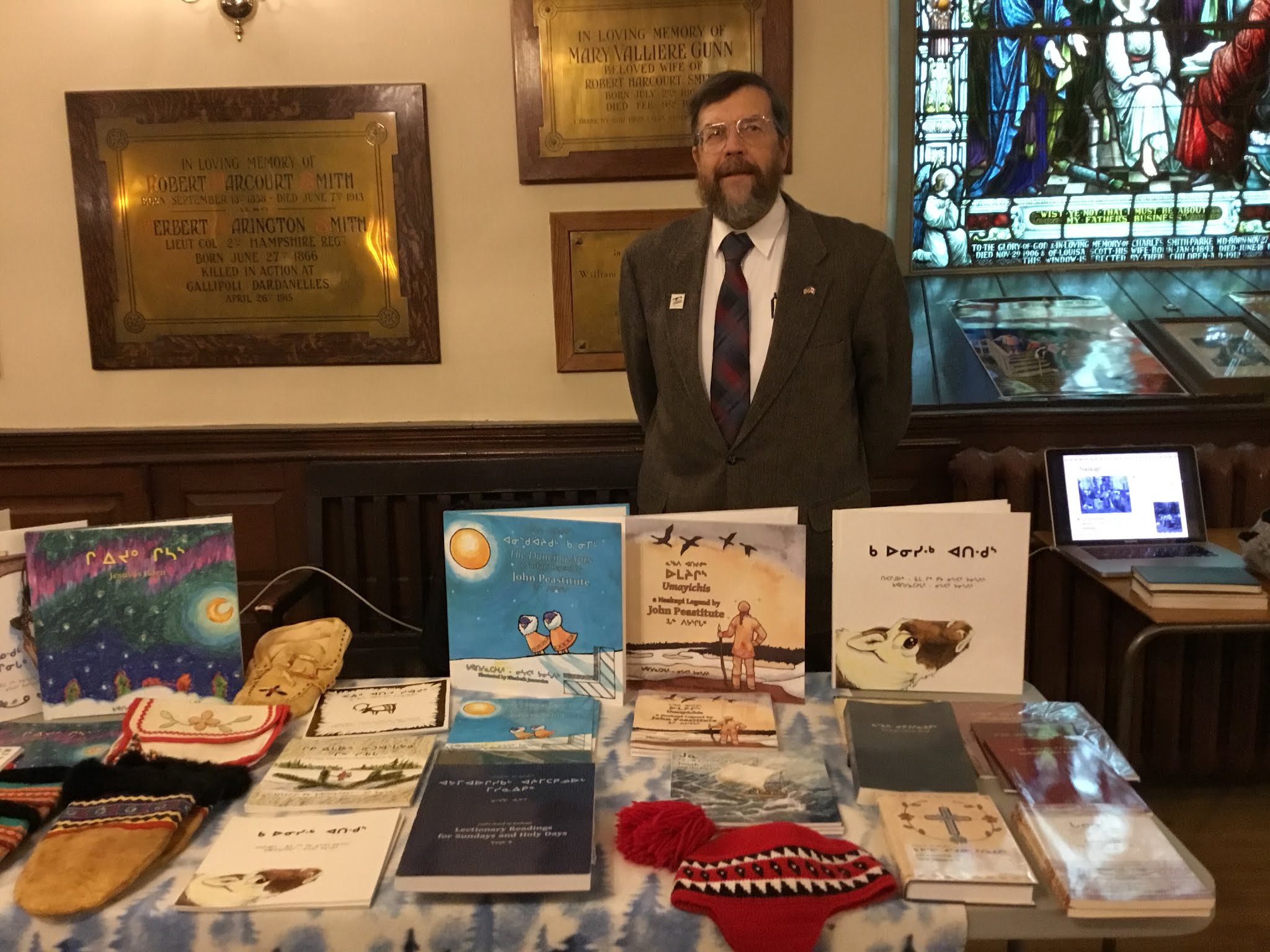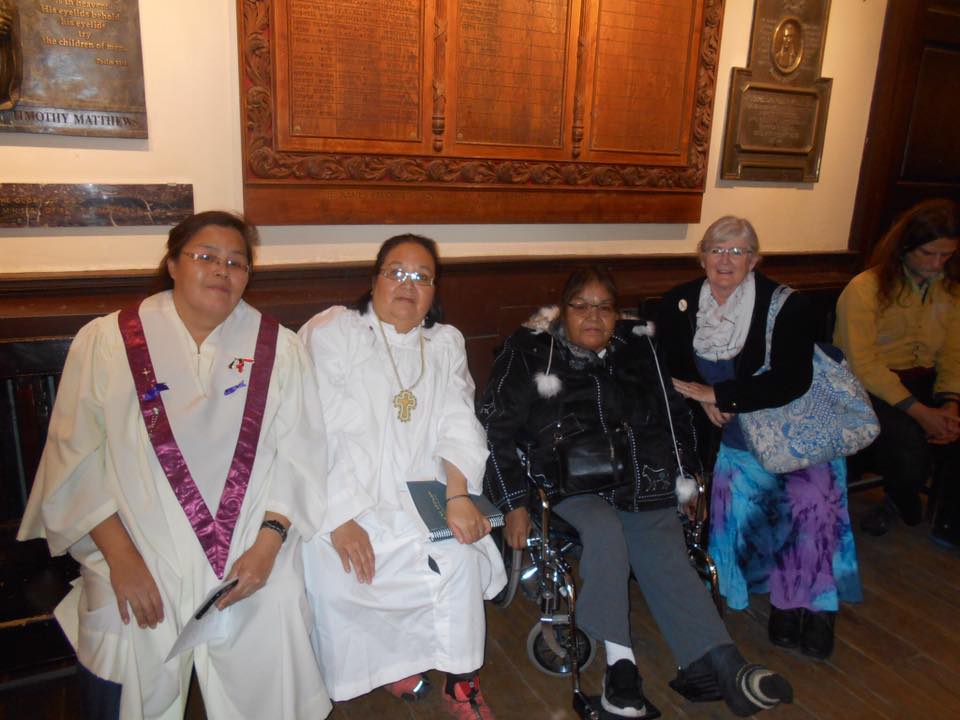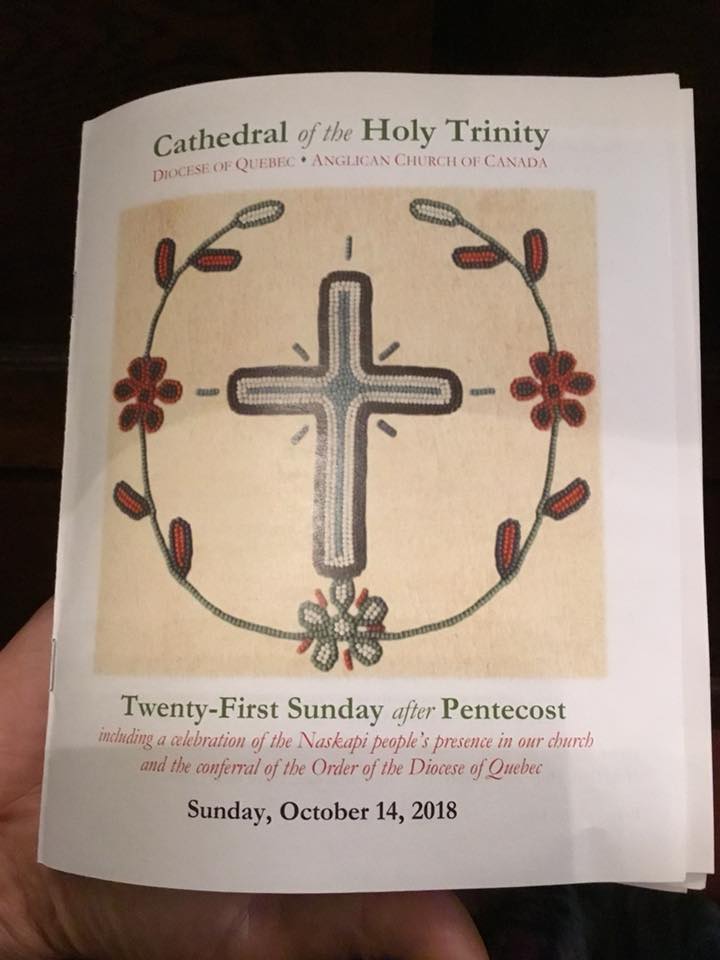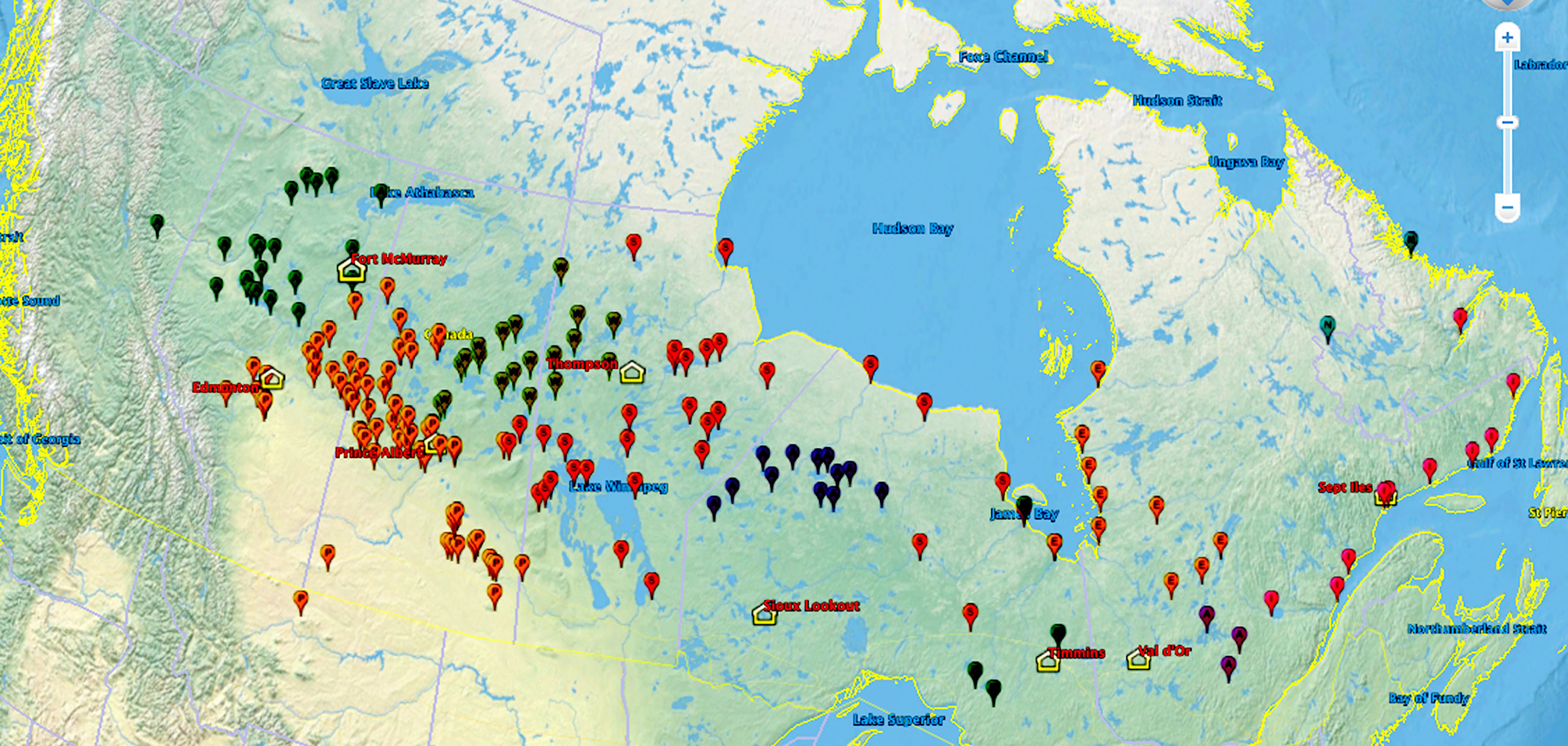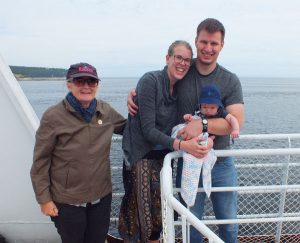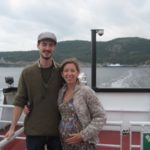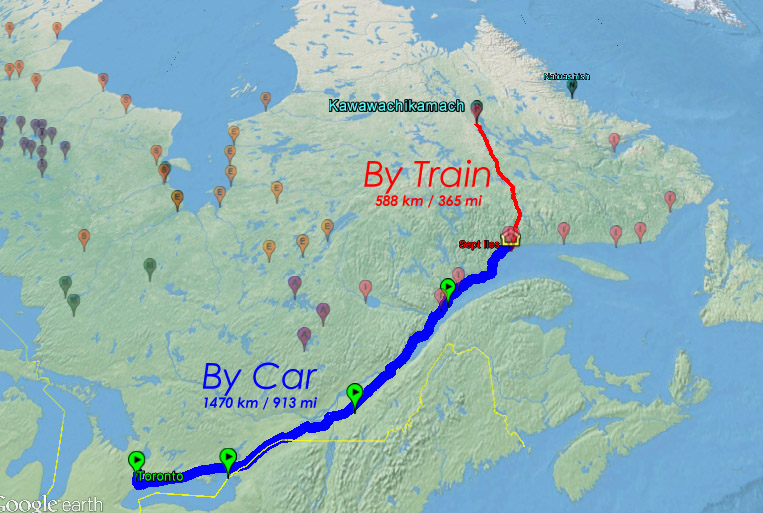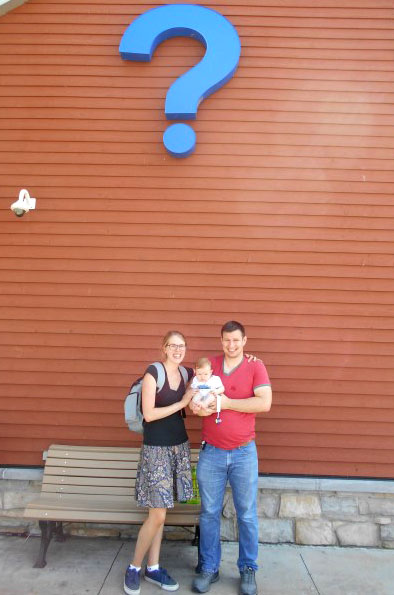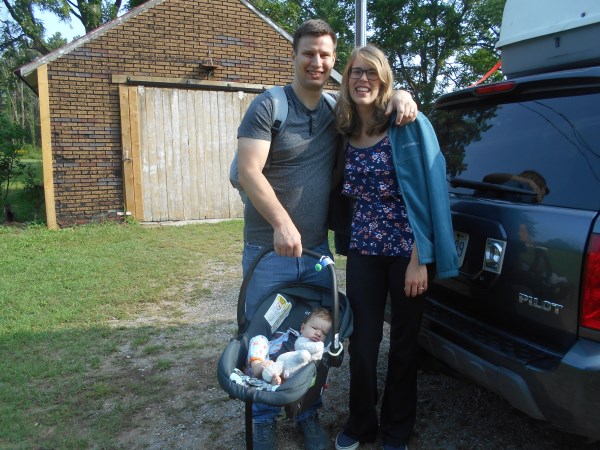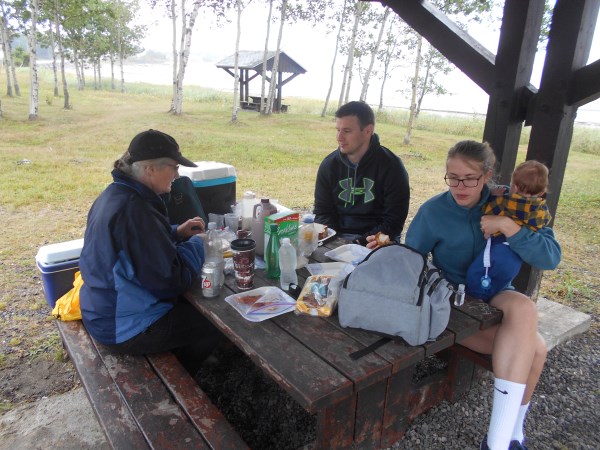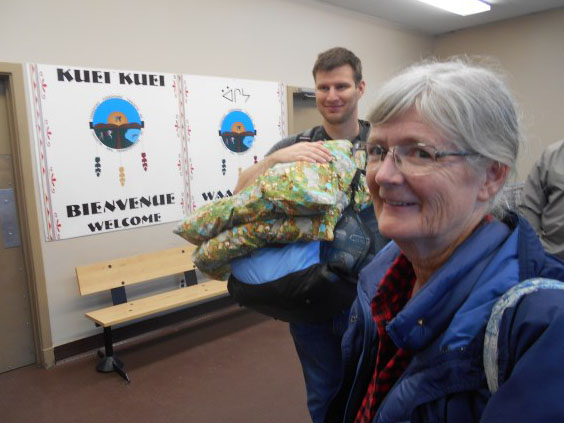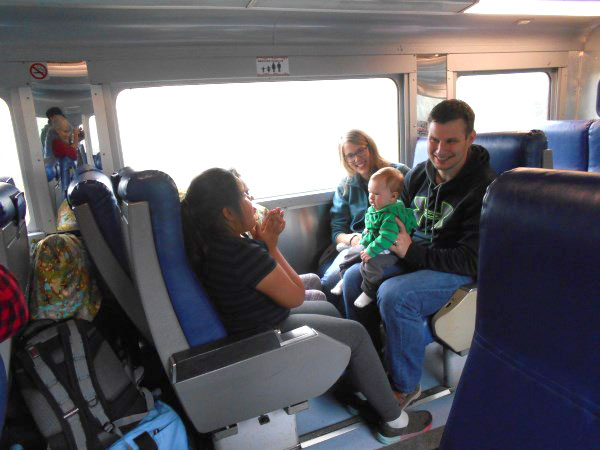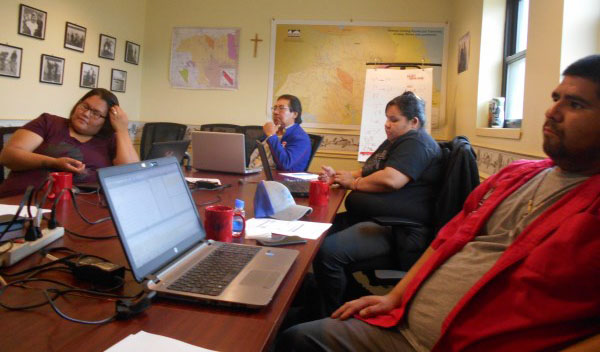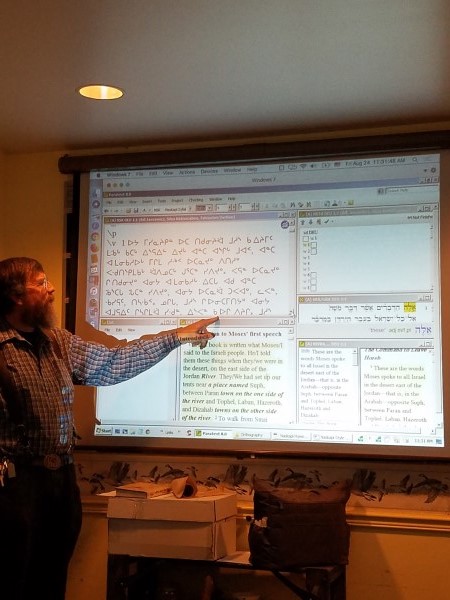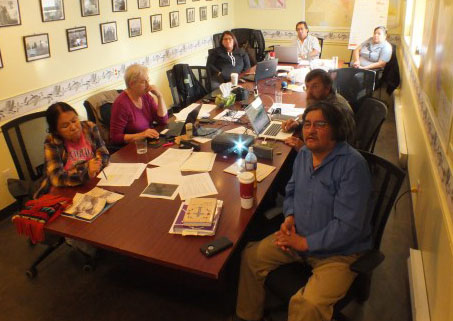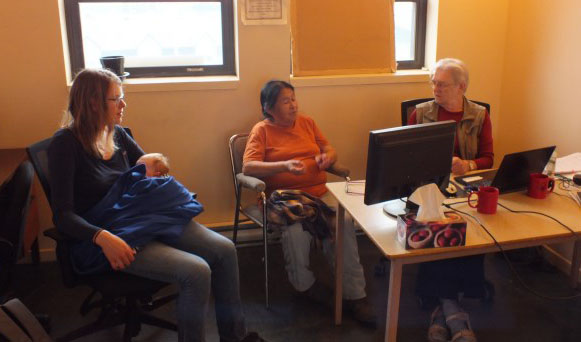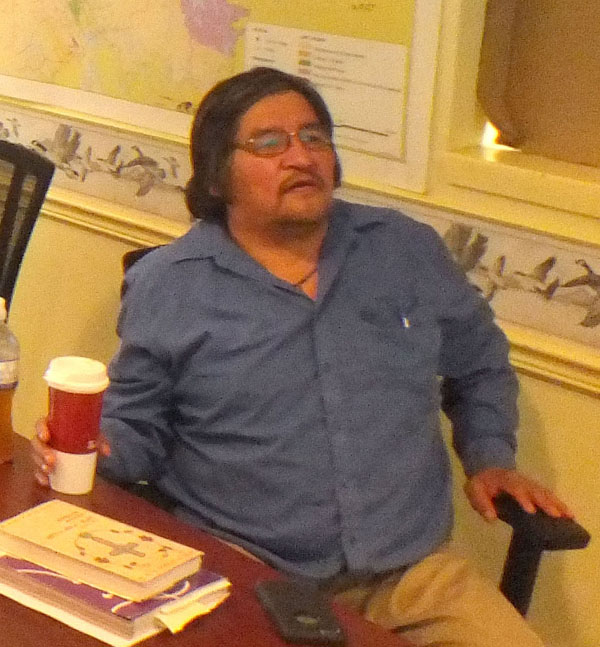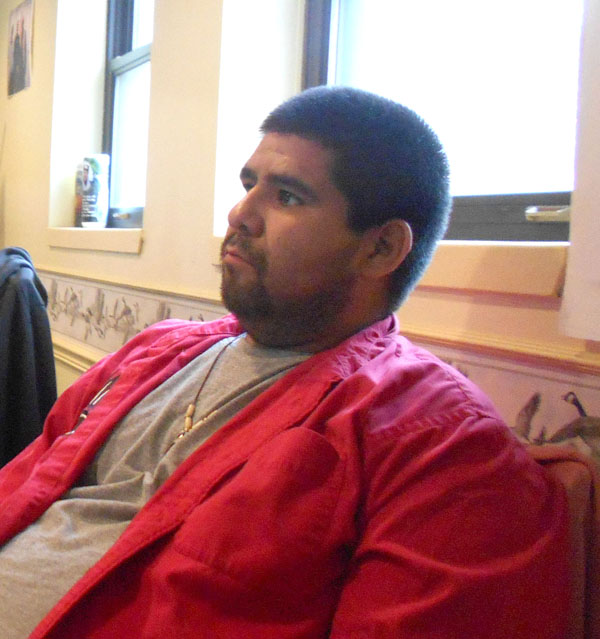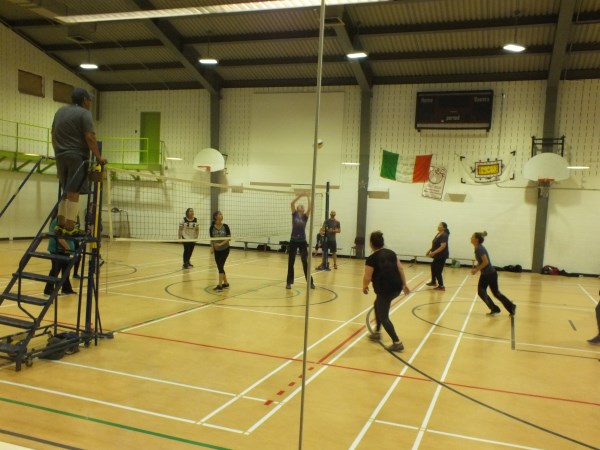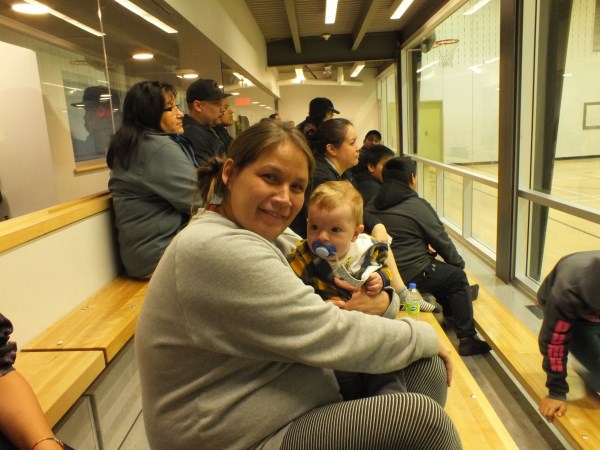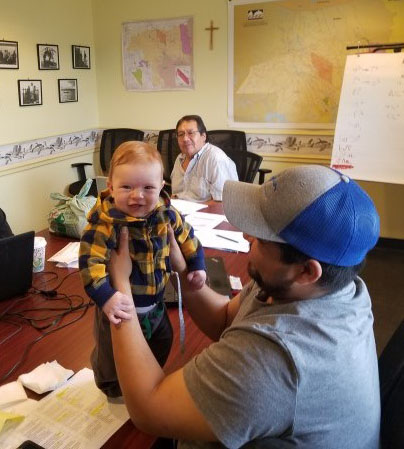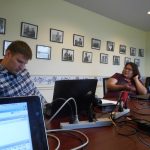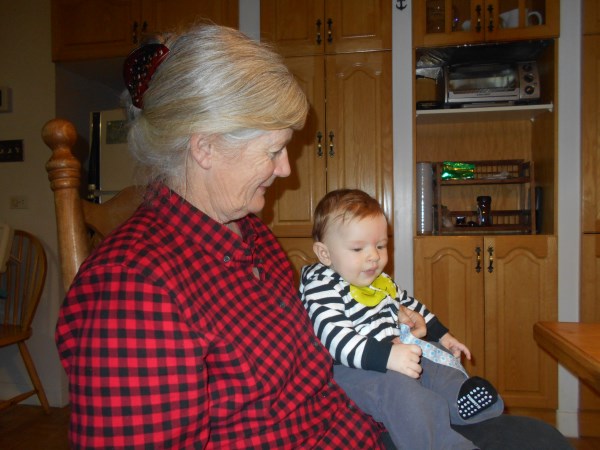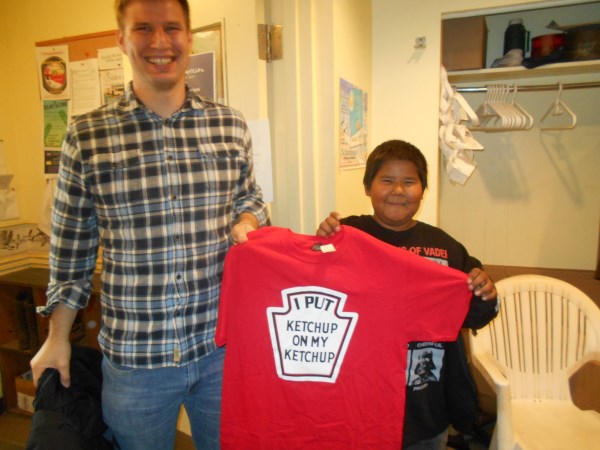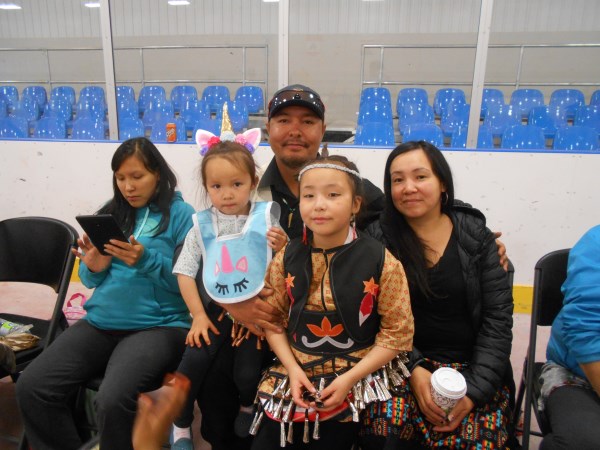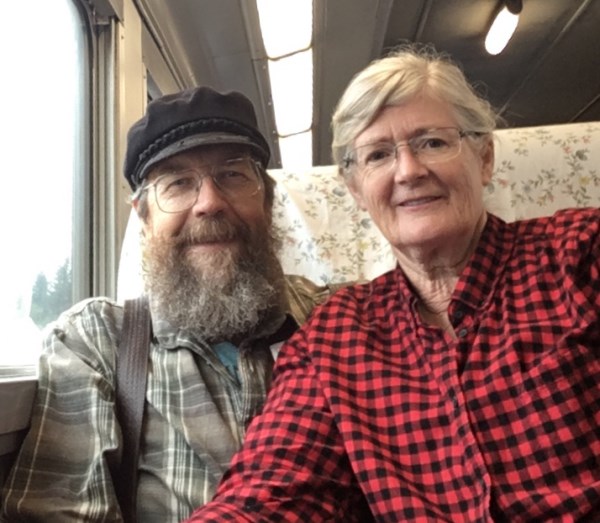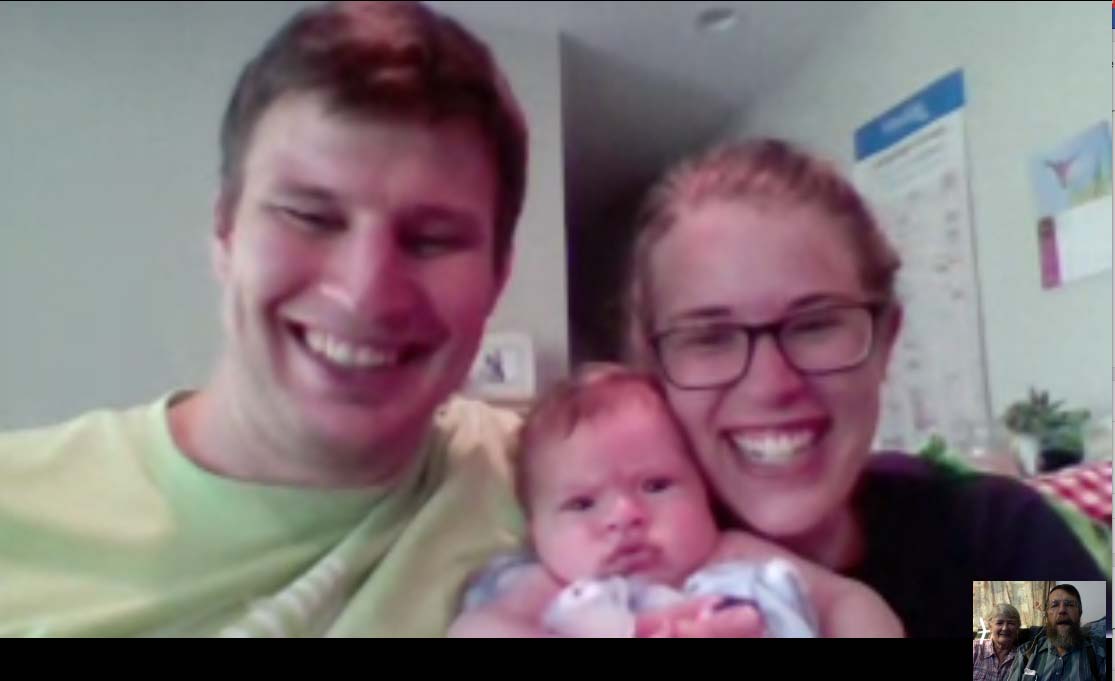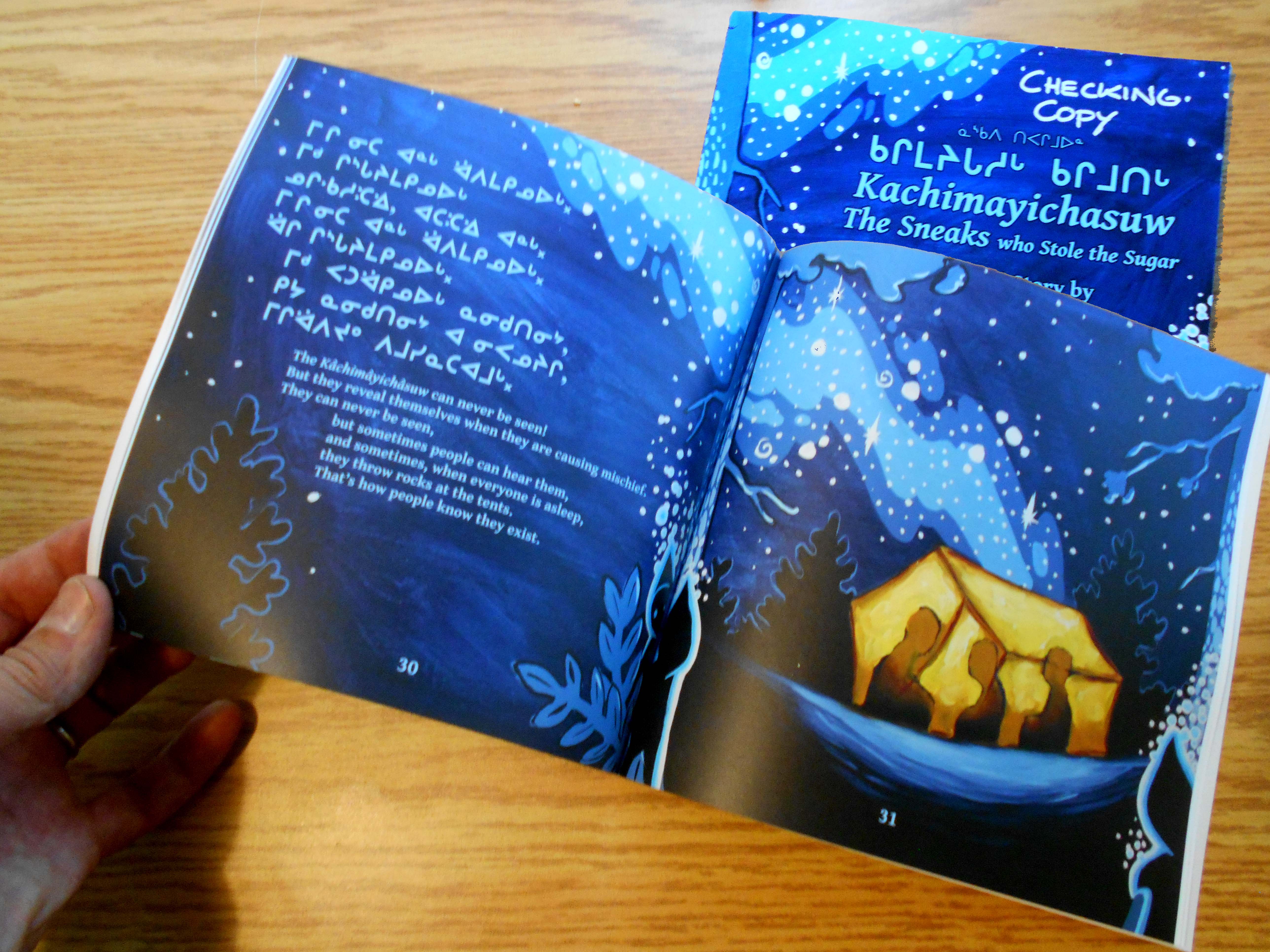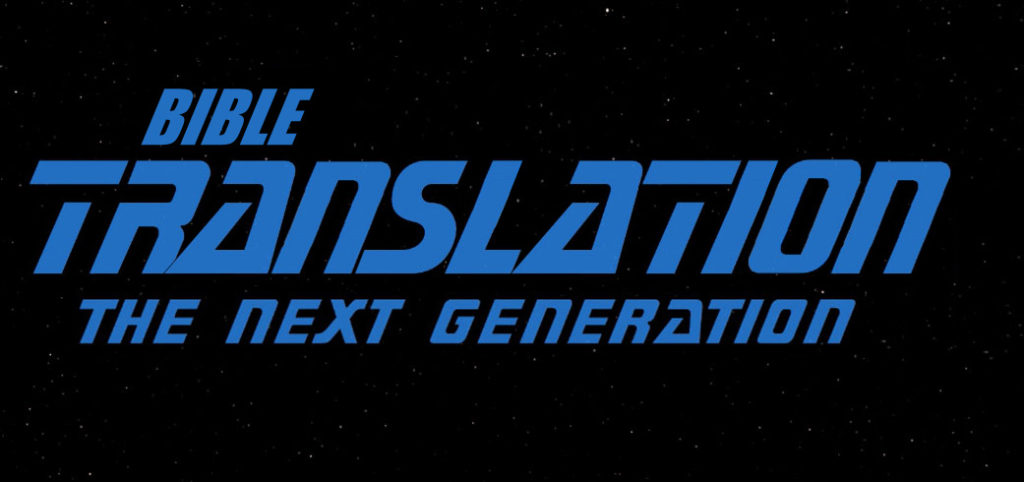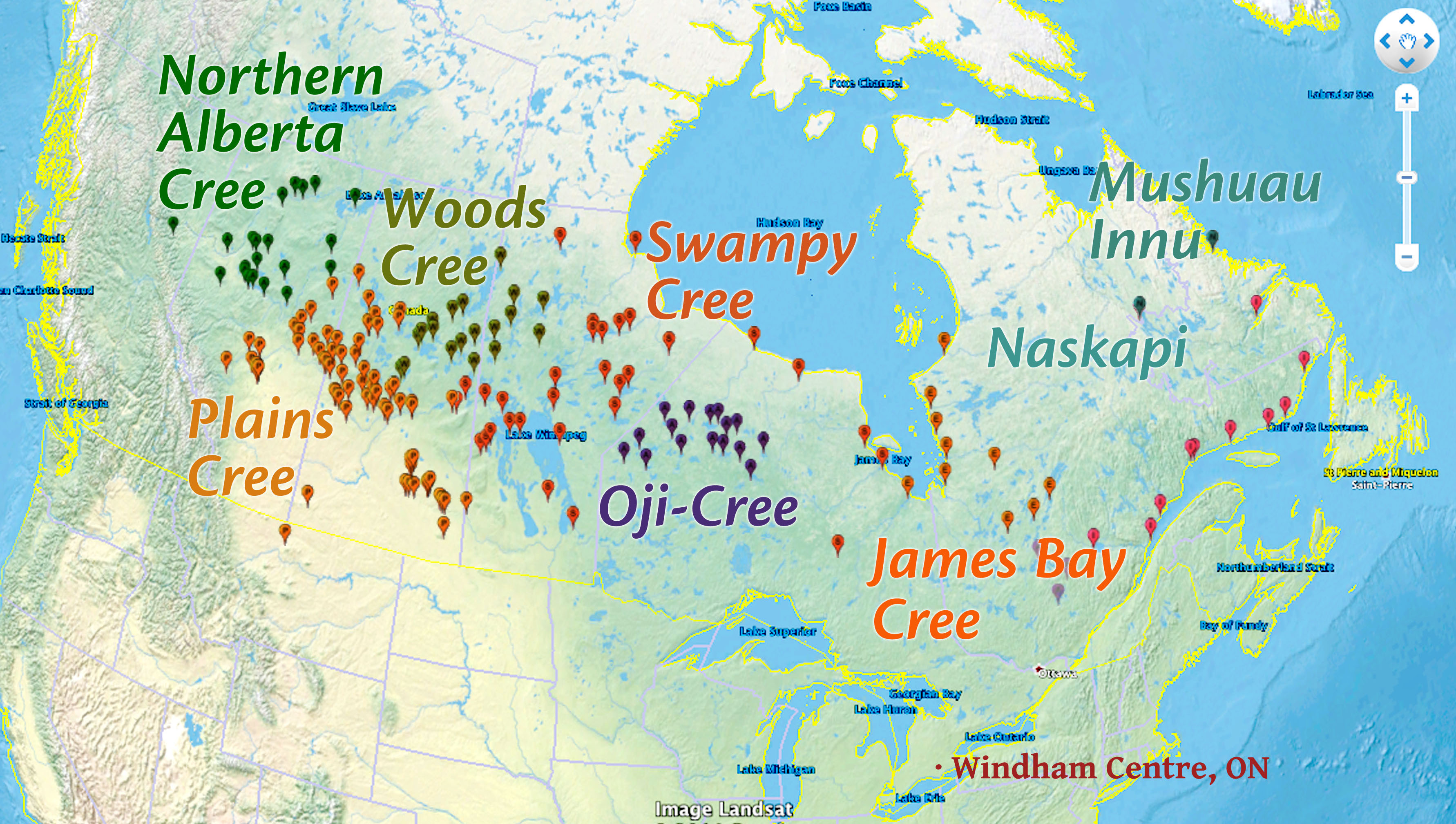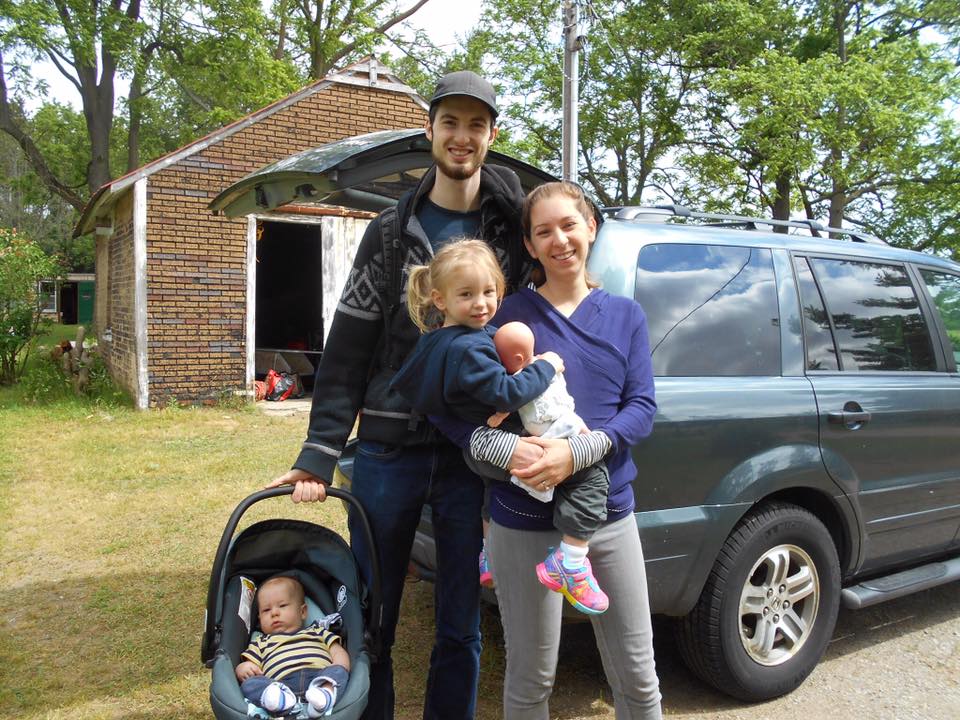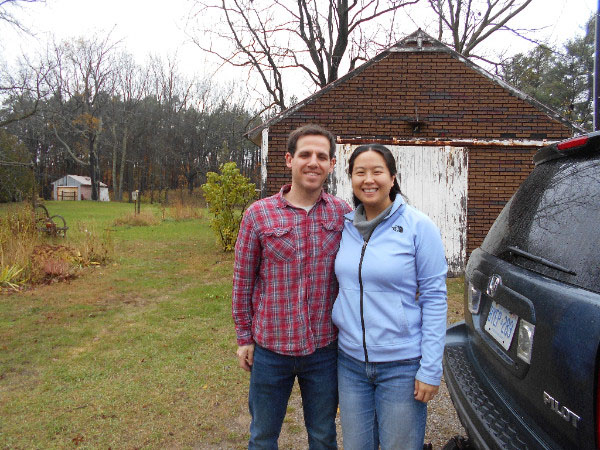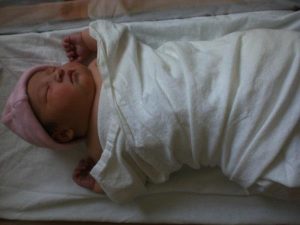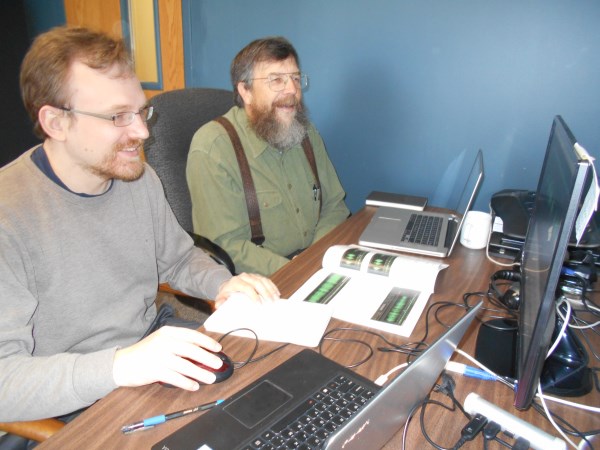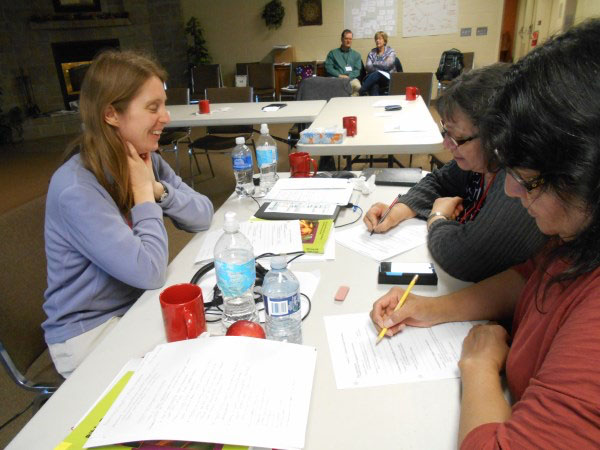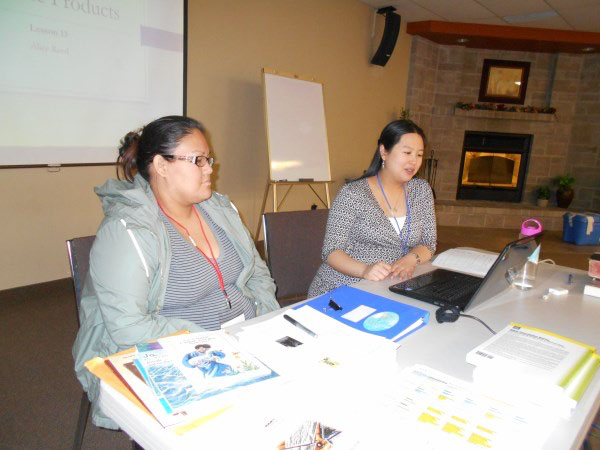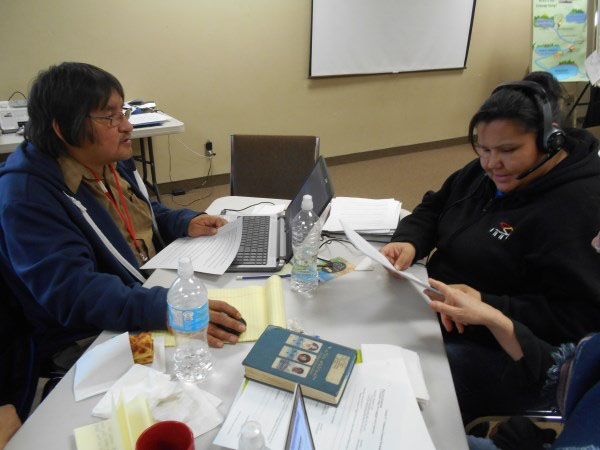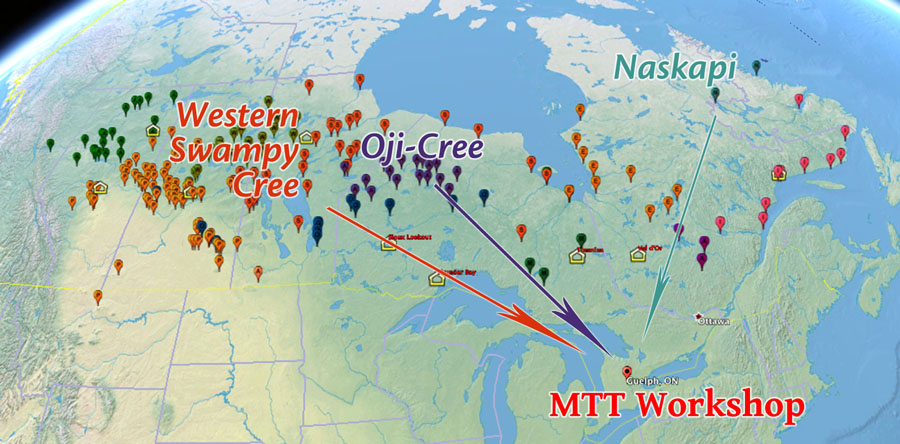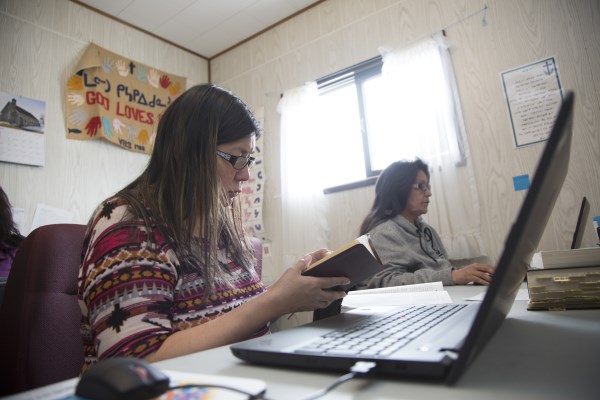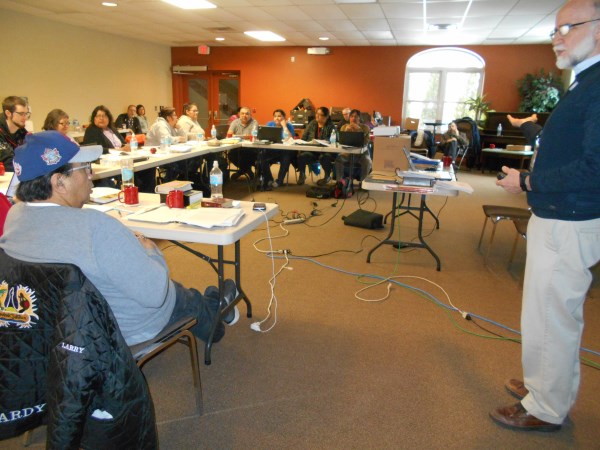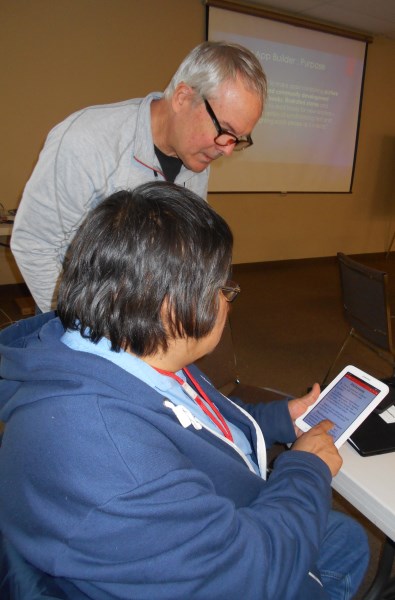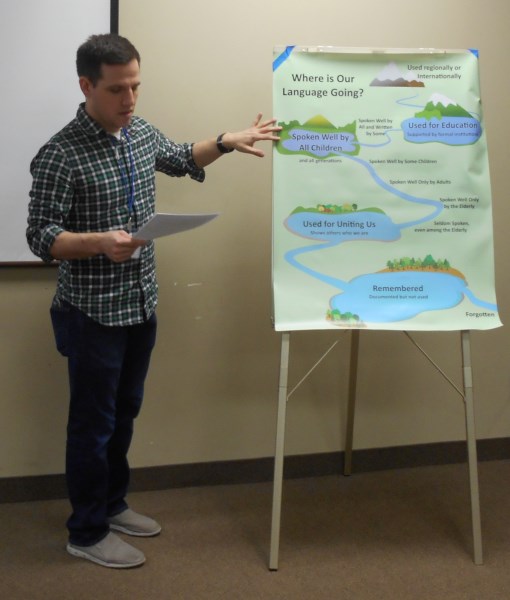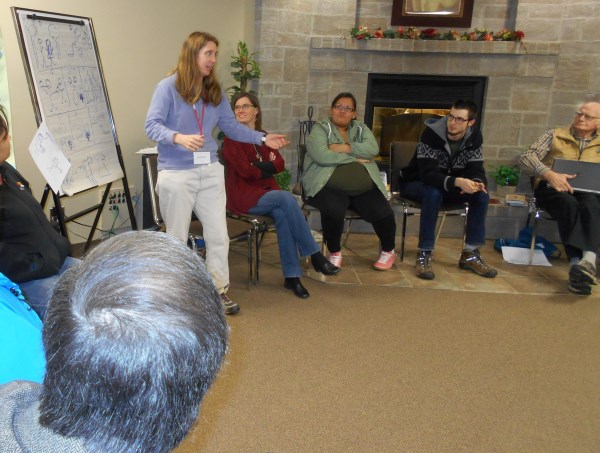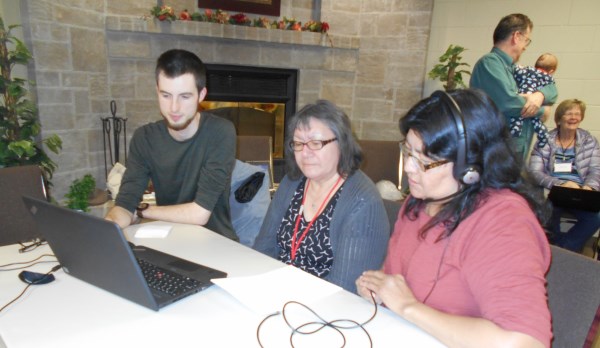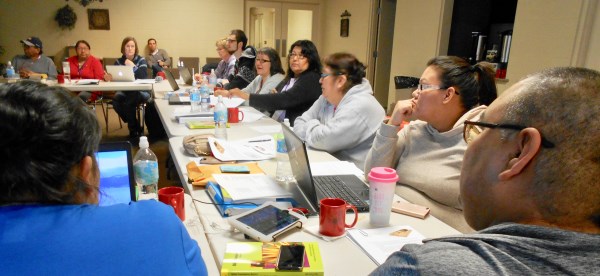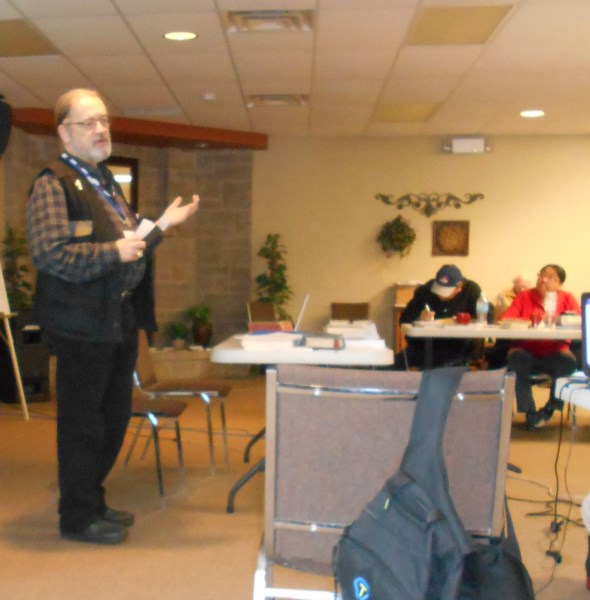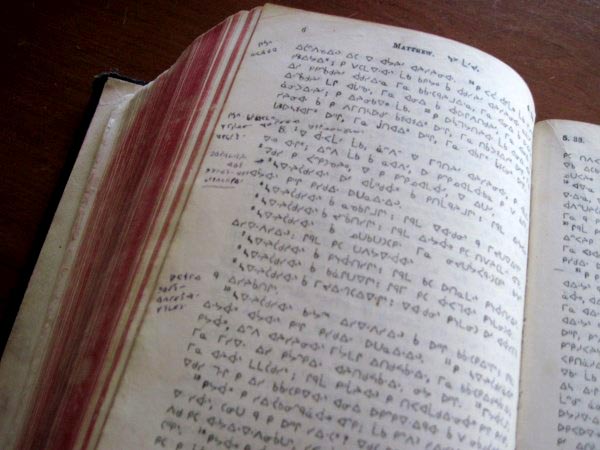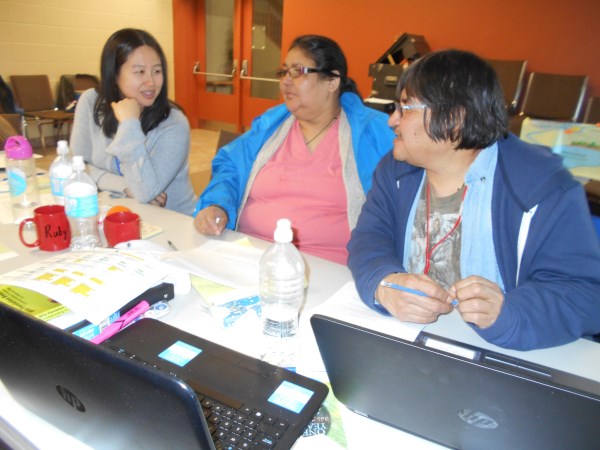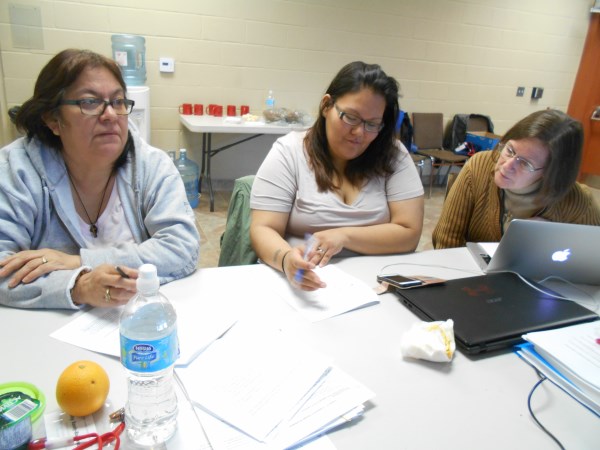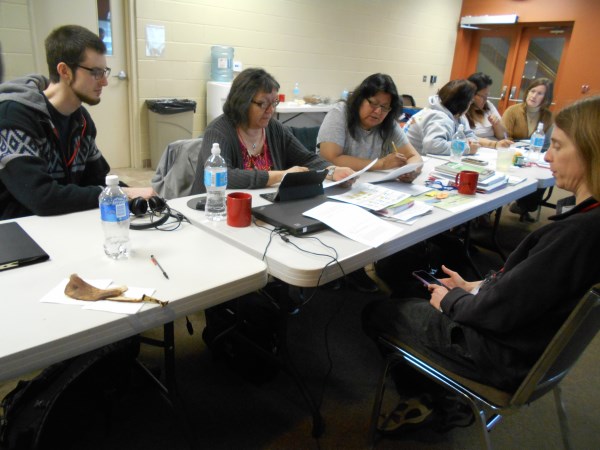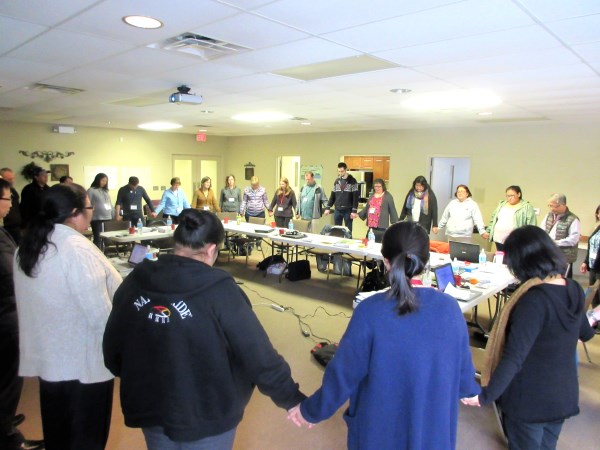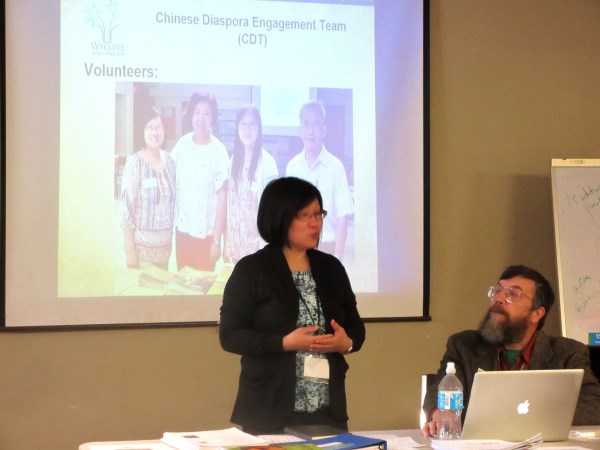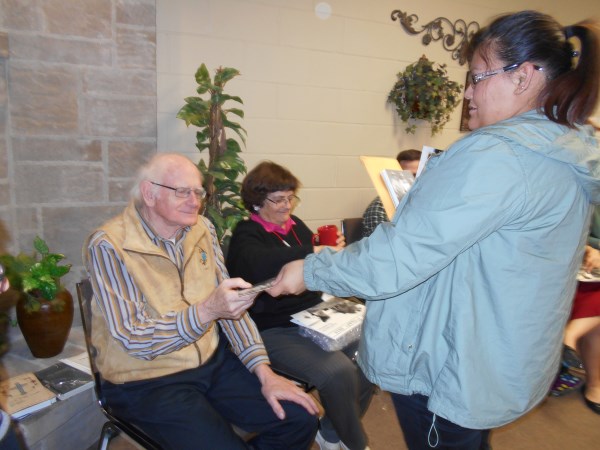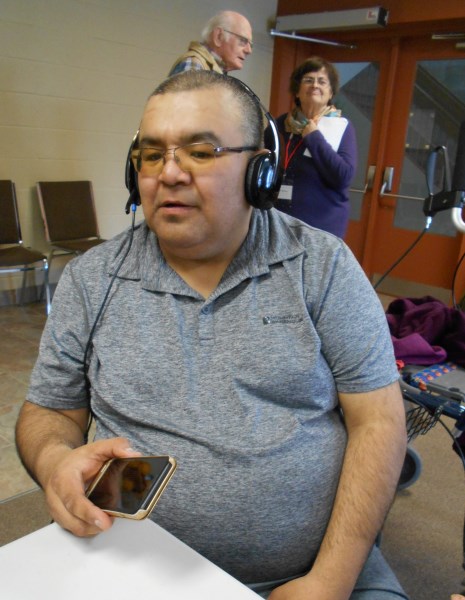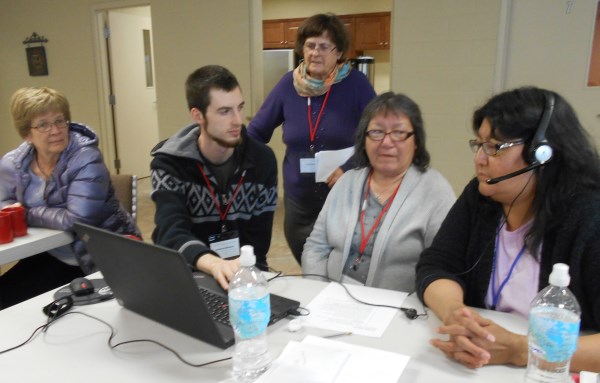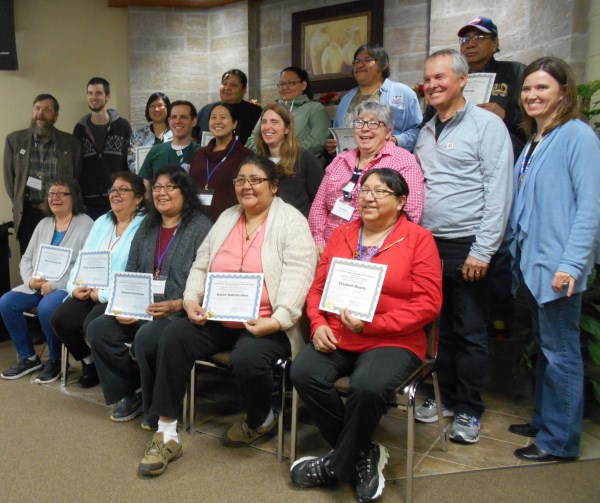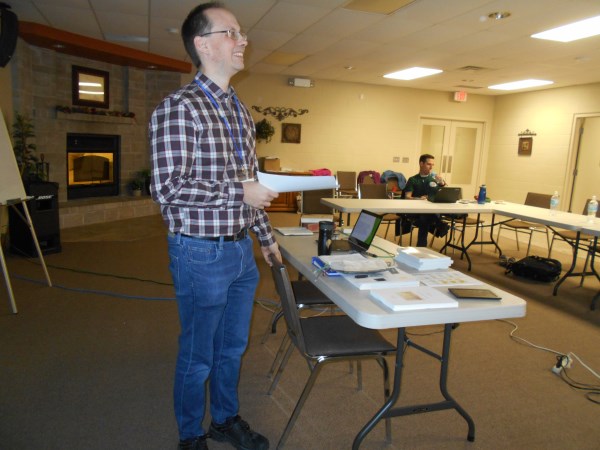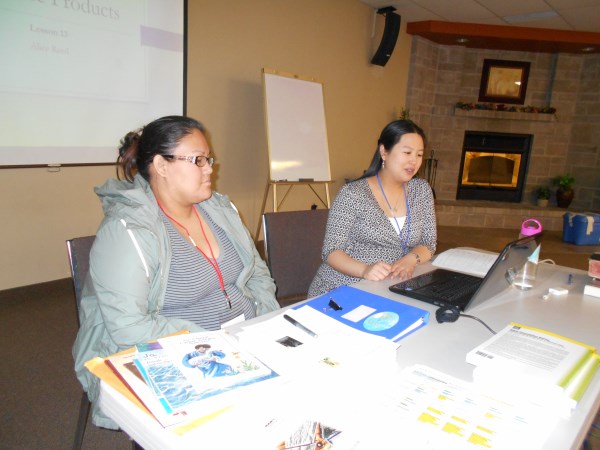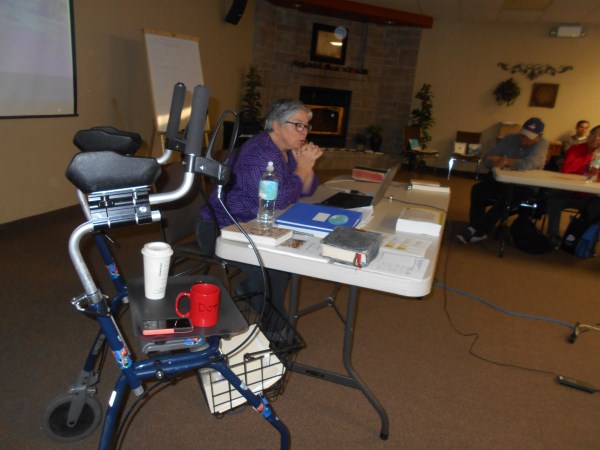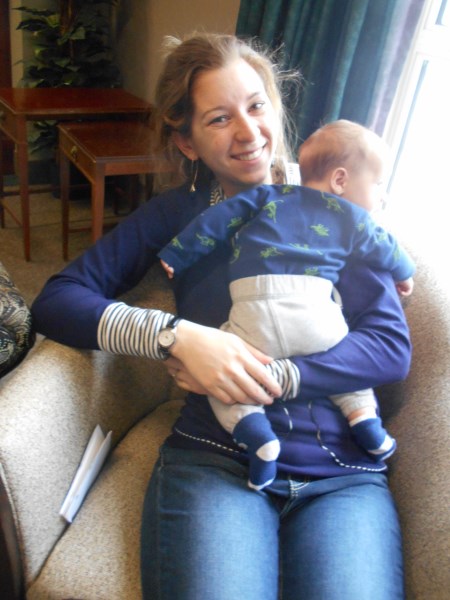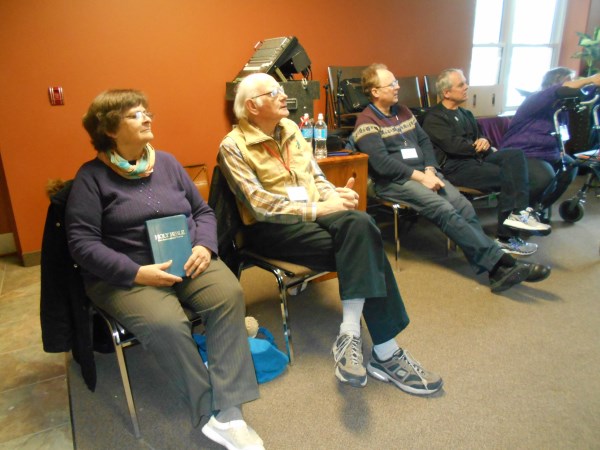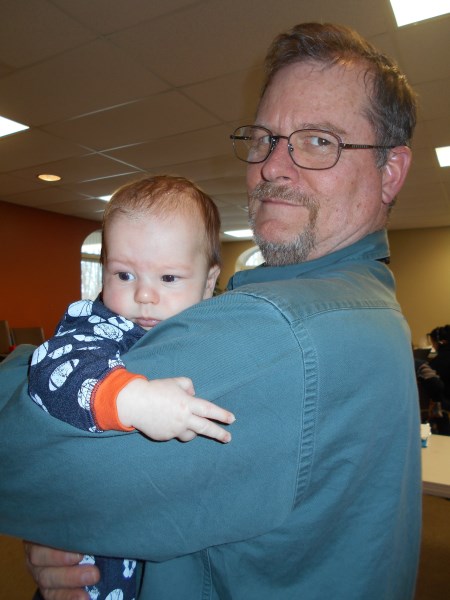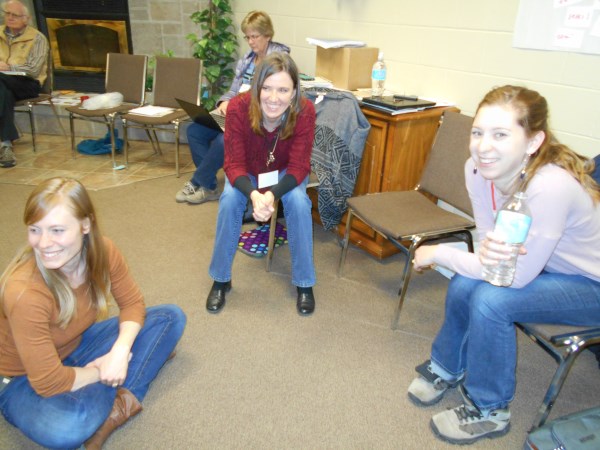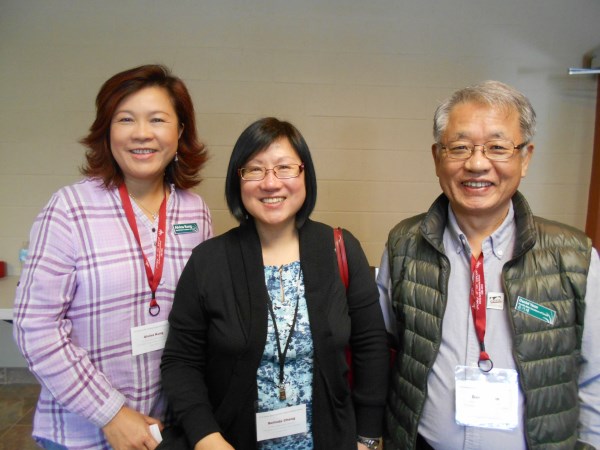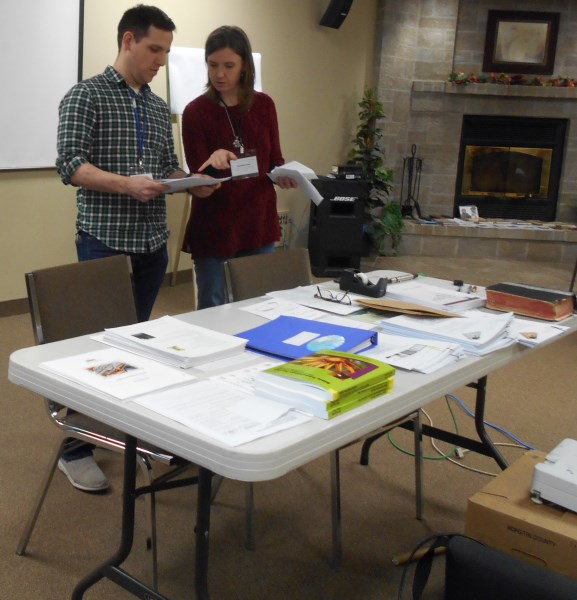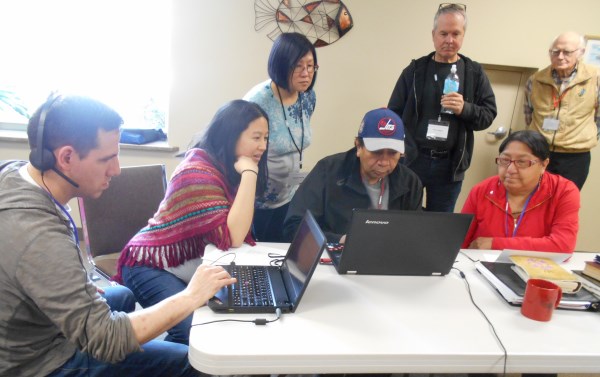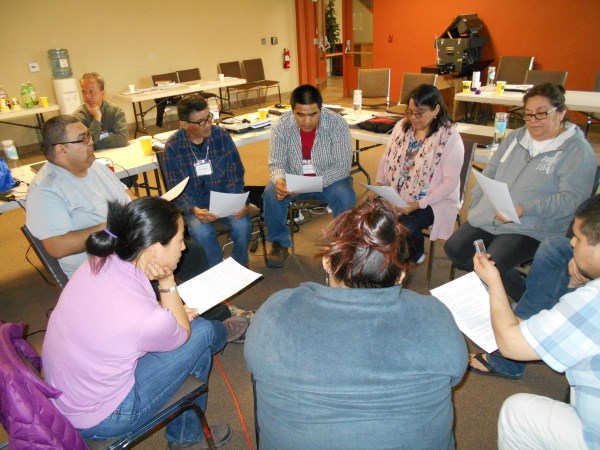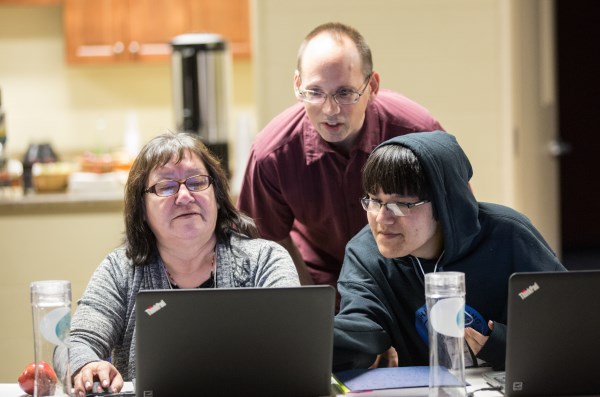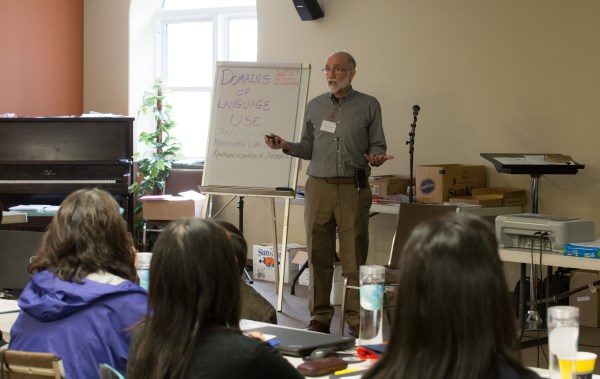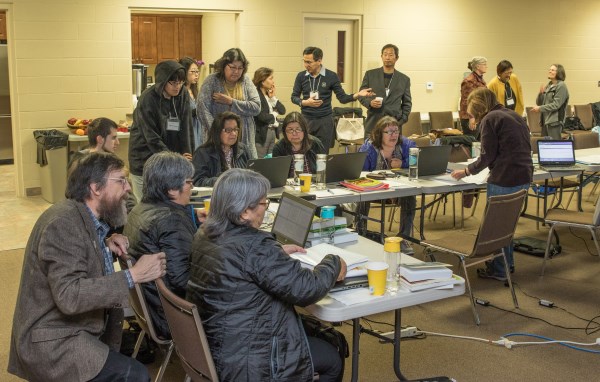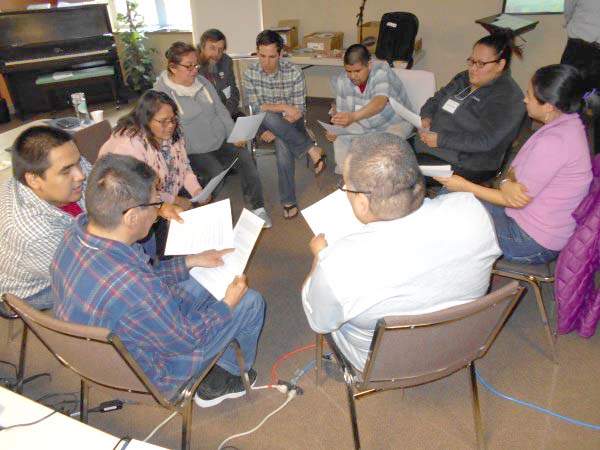Our Dear Partners,
On the 3rd Sunday of Lent, March 24th, 2019 there was a special service held at St. John’s Parish, Kawawachikamach, for the dedication of the translated book of Psalms in the Naskapi language. This is another important milestone for the work the Naskapi translation team does in making the Bible available and accessible in their own language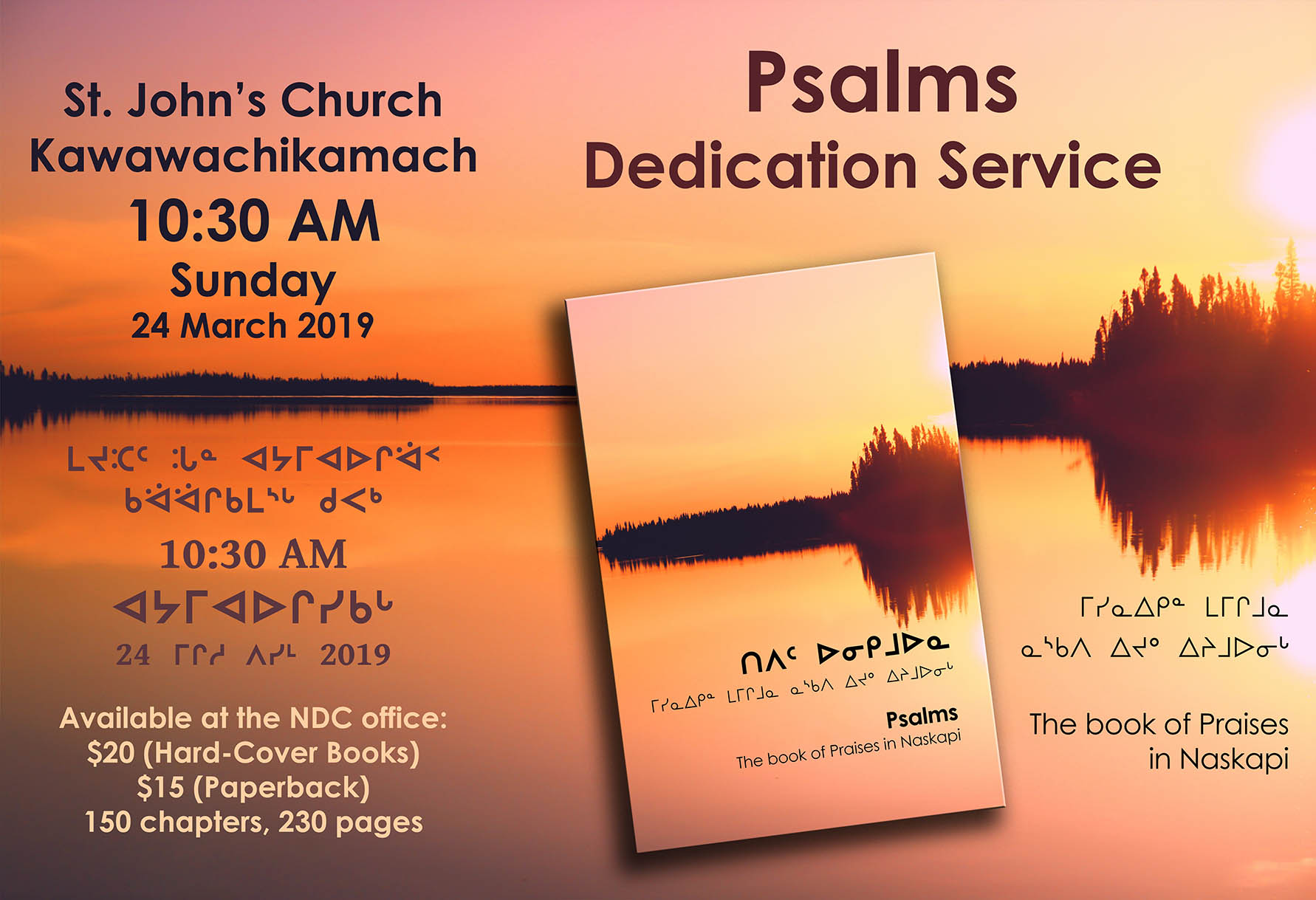 Work began on the Naskapi Bible translation project in the 1990s. The Naskapi Development Corporation (NDC) partnered with St. John’s Parish and Wycliffe Bible Translators to build a translation team that sought to fulfil the vision of the late Joseph Guanish, long time chief of the Naskapi Nation, former president of NDC, and mentor and inspiration to the team and the community.
Work began on the Naskapi Bible translation project in the 1990s. The Naskapi Development Corporation (NDC) partnered with St. John’s Parish and Wycliffe Bible Translators to build a translation team that sought to fulfil the vision of the late Joseph Guanish, long time chief of the Naskapi Nation, former president of NDC, and mentor and inspiration to the team and the community.
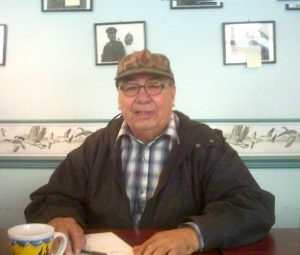 He lived to see his vision begin to be fulfilled with the publication of the New Testament in the Naskapi language in 2007, followed by the dedication of the book of Genesis in 2013. The Translation of the Psalms into Naskapi was initially a part of Lectionary Readings for Sundays and Holy Days (2012), using the Psalter included in Bishop John Horden’s 1889 Book of Common Prayer in the Cree language as the primary source material. With the present publication, the Naskapi Development Corporation is pleased to present all 150 Psalms to Naskapi readers for the first time in a single volume. Our prayer is that these Scriptures would bless the Naskapi people for generations as they have blessed millions of God’s people around the world for thousands of years.
He lived to see his vision begin to be fulfilled with the publication of the New Testament in the Naskapi language in 2007, followed by the dedication of the book of Genesis in 2013. The Translation of the Psalms into Naskapi was initially a part of Lectionary Readings for Sundays and Holy Days (2012), using the Psalter included in Bishop John Horden’s 1889 Book of Common Prayer in the Cree language as the primary source material. With the present publication, the Naskapi Development Corporation is pleased to present all 150 Psalms to Naskapi readers for the first time in a single volume. Our prayer is that these Scriptures would bless the Naskapi people for generations as they have blessed millions of God’s people around the world for thousands of years.
How can a young man keep his way pure?
By living according to your word.
I seek you with all my heart;
do not let me stray from your commands.
I have hidden your word in my heart
that I might not sin against you.
ᑕᓐᑕ ᒐᒋ ᐅᒋ ᐸᔭᒋᑕᑦ ᐅᔅᒋᓂᒋᓱᐤ ᐅᑦ ᐃᓯᑥᐅᓐ?
ᐊ ᐃᔭᒂᒥᓯᑦ ᐊ ᐃᔅᒋᔄᒥᑭᓂᔨᒡ ᒋᑦ ᐃᔨᒧᐅᓂᔪᐤ᙮
ᒥᓯᐛ ᓂᑕᐃᒡ ᔅᒋ ᐅᒋ ᓇᓂᑐᐛᔨᒥᑎᓐ:
ᐅ ᐊᑲᐎᔾ ᓇᐊᔨᒥ ᒐᒋ ᐅᓂᒥᑎᒪᔭᓐ ᒋᐎᓱᐛᐅᓇ ᐅᒡ᙮
ᒋᑦ ᐃᔨᒧᐅᓐ ᓂᒋ ᑲᑕᓐ ᓂᑕᐃᒡ,
ᒐ ᐊᑲ ᒋ ᒥᒋᑐᑕᑕᓐ᙮
–Psalm 119:9-11–
The book of Psalms is one of the books of the Bible that give us wisdom on how to live well. It is a collection of raw, honest prayers poured out to the Lord that cover a wide range of life experiences. Each was composed in response to a real-life situation or celebration. Together they cover the full spectrum of human emotion, from exuberant joy to agonizing pain.
The Psalmists invite us to express our true thoughts and feelings to God. We do not have to hold anything back. We are not alone in the ups and downs of life. Instead, we have the assurance that God is faithful and good, and His presence is with all who trust in Him.
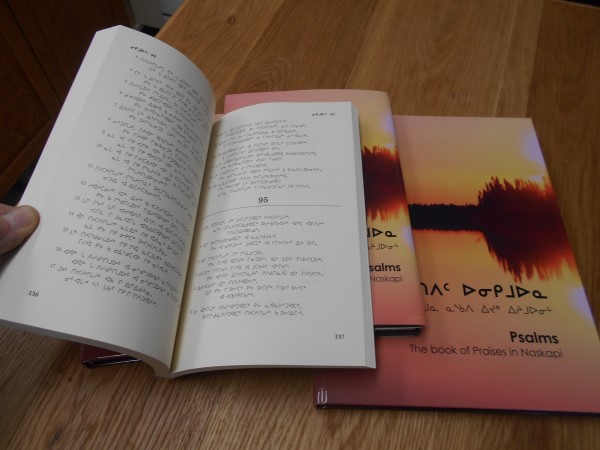 The translation team expressed to us how proud they are of this accomplishment, and the Naskapi people are also grateful to have still another part of the Bible available in their own language. Continued work on translating the Old Testament into Naskapi is still an on-going project that we are committed to, and provides them with another way of preserving their language, and know and love God better.
The translation team expressed to us how proud they are of this accomplishment, and the Naskapi people are also grateful to have still another part of the Bible available in their own language. Continued work on translating the Old Testament into Naskapi is still an on-going project that we are committed to, and provides them with another way of preserving their language, and know and love God better.
Our friend, the Rev. Silas Nabinicaboo, the deacon at the Naskapi Church, asked us to tell you:
“The Naskapi community and St. John’s Parish would like to express our deep thanks to all those who have been dedicated to this project. The early drafts of Psalms were prepared and reviewed by the late Joseph Guanish, and work continued on this project over more than fifteen years by myself, joined by Naskapi Language Specialists Amanda Swappie, Ruby Nabinicaboo, Tshiueten Vachon. We are filled with gratitude to everyone who provided their guidance, and assistance, and to all who gave their support for this project.”
Please join us in praise and thanks to God and congratulations to the translation team at Kawawachikamach for this accomplishment!
Serving with you, Bill & Norma Jean
The Book of Psalms in Naskapi is also available to the general public through online sales:
http://www.lulu.com/content/21310118

